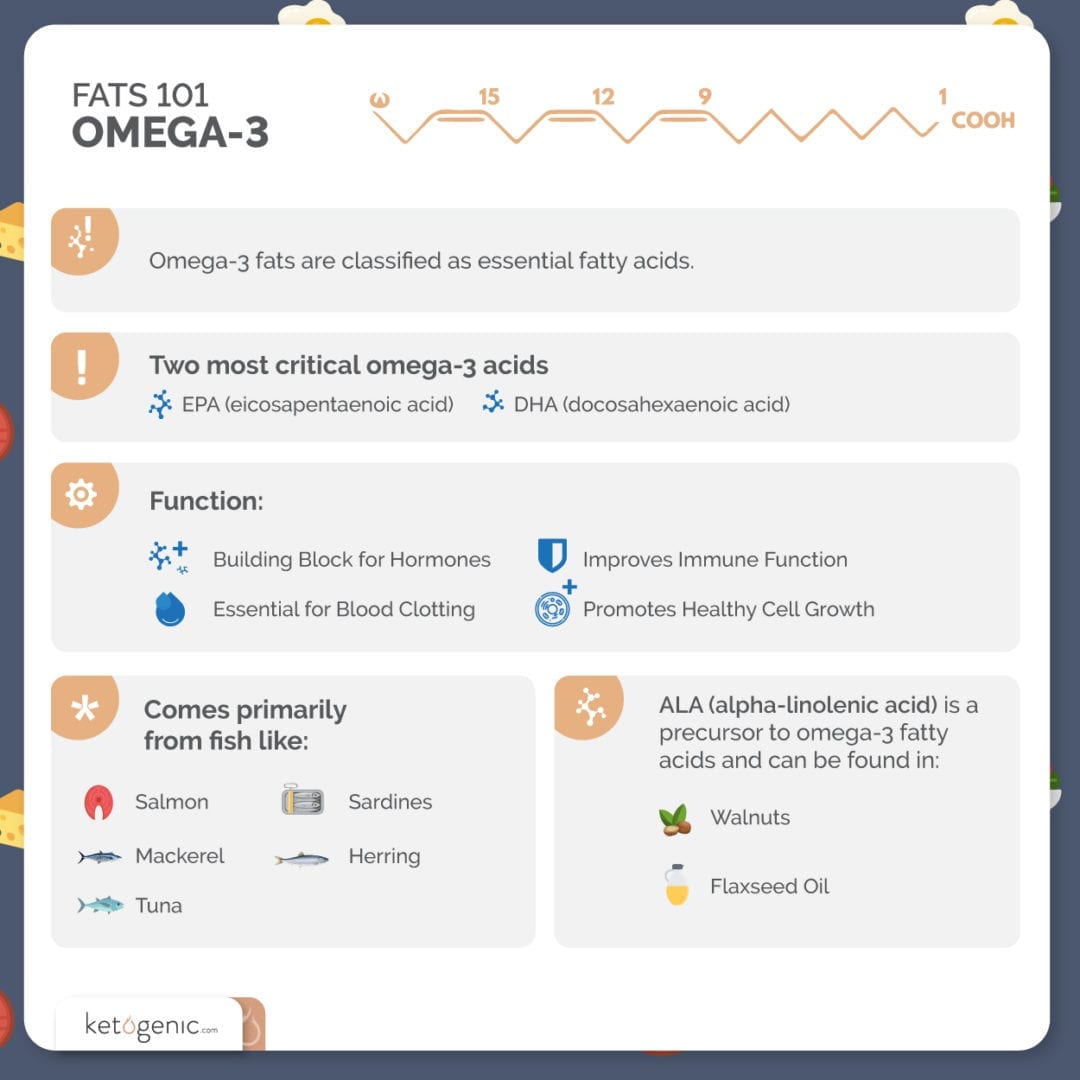
Fish is often touted as being a superior protein source but why is this? Could it be the superior fat source? It is well known that omega 3 fatty acids are healthy and good for the brain, but why is this?
Omega 3 Fats
Omega 3 fatty acids are polyunsaturated fatty acids (PUFAs). They contain ALA (alpha-linolenic acid) which is a short-chain fatty acid and both EPA and DHA which are long-chain fatty acids.
Fatty acids such as ALA and linoleic acid are considered essential fatty acids (EFAs) because the body cannot produce these. ALA can be converted into EPA and DHA, however, this conversion is not enough to maintain optimal levels of these fats. Thus, EPA and DHA are to be consumed within the diet as well.
ALA can be found in other PUFAs (such as plant oils) but EPA and DHA are found primarily within fish and krill oil, when these sea-creatures consume plankton omega 3s accumulate within their tissues and then we eat them – thanks sea-creatures. [1]
Omega 3 Fats and our Cells
These fatty acids are unique in their interactions within the cell. They formulate part of the phospholipid bilayer (the cell wall), which is essential to protecting the cell. In addition to this role, they play a part in producing signaling molecules called eicosanoids. These signaling molecules are crucial to the cardiovascular, pulmonary, immune, and endocrine systems.
Furthermore, higher levels of DHA and EPA have been shown to lower inflammation within the body. [2]

Omega 3:Omega 6 Ratio
Typically, omega 3 fatty acids promote an anti-inflammatory response within the body and omega 6 fatty acids promote inflammatory pathways (with some exceptions).
It is becoming more widely accepted that a certain ratio of omega 3:6 is conducive to health, however, this exact ratio is currently undefined.
Consuming higher amounts of omega 3s with higher EPA and DHA content within our diet will ensure higher levels of omega 3 fatty acids within the body. An elevation of omega 3s within the body has been found to have benefits in areas such as:
- Brain Health
- Eye health
- Heart health
- Tissue health
- Depression
- Skin health
Additionally, it is hypothesized that higher omega 3 intakes may reduce the risk of cancer and help during treatment due to their anti-inflammatory properties, although more research is constantly being done in this field.
How Can You Incorporate Fish Fat Into Your Diet?
The simplest way is to simply add more fish into your diet! Try choosing one of these top fish sources of omega-3 fatty acids.
Conclusion
The idea that fish fat has some superior properties is a demonstration that not all fats are created equally. This one of the reasons why variety is key in any diet and incorporating fish into your ketogenic diet can be essential for improving your overall health.
References
NIH. (2016).Omega 3 fatty acids.
Zivkovic A. M. Telis M. German J. B. et al. (2011). Dietary omega-3 fatty acids aid in the modulation of inflammation and metabolic health.California Agriculture. 3 (65), 106-111.









